"Charlie! My name's Charlie! I don't know where we should send them, Mr. Leeper. But it had better be a long way away."
CHAPTER 21
"send 'em to China," Rory said. Charlie was sitting on his bike outside the piano box. He had pulled the plywood to one side so the sun could shine in— it was sunny for the first time in two days, though water still dripped from everything, for the rain had ceased only late in the afternoon. The two animals had the Fox packed and were all prepared for their cross-country. "Send 'em to China," Rory repeated. "I heard once that people in China eat fried larks, so maybe they'd like fried starlings."
The starling crates had all been built, forty-two big wooden crates. Five of them stood right now inside the mechanic's hangar, open and liberally scattered with seed. It had taken some doing to get the crates in through a crack in the big doors, and they had lost maybe another dozen starlings. But when Charlie had left the hangar, the first birds were already beginning to eat, flying in one at a time to snatch up a beakful of seed.
The dozen birds that had escaped, plus those that had escaped the first time, made an angry little band that sat now along the top of a pile of twisted bed springs, watching the piano box.
"I don't think you should take off with them out there," Charlie whispered softly.
"We can't stay here forever, sonny. The Fox needs to be flying. And I'm getting itchy feet."
"I still think you should practice more."
"I'll practice on the flight," Rory growled. "I plan to take off first thing in the morning, before it's light, be out of here before those starlings come. Will you nail the hangar up good when we're gone?"
"Maybe I'll put hinges on the plywood, and a latch."
"That'd be great, sonny. Except when we come back it'll only be for a day or so, to tune up the engine if she needs it, get ready for the long flight. Don't seem worthwhile to go to all that trouble just for that short time."
"I'll come out in the morning and take the plywood off anyway," Charlie said rather sadly. "And put it back afterward."
When Charlie got home, dinner wasn't quite ready and Mush was still practicing, so he shut himself in his room and lay on the bed trying to think of someone who might want a hangar full of starlings. Finally, he stuffed some cotton in his ears to block out Mush's playing, though it didn't help much. As he stared idly out the window, the three dozen starlings circled the house next door and landed on its roof.
"If we don't get rid of those three dozen, too," the mayor had said, "they'll breed and multiply into a thousand more before you can blink, Charles." Charlie wished they could send the whole stupid flock to China. The starlings on the roof next door seemed unusually quiet, were not quarreling, weren't even paying attention to the street lights that had just come on. They were crowded on the roof as close to Charlie's house as they could get, peering over at it. A few flew over to his roof, where he could not see them. Then suddenly the rest swooped down close to Charlie's window, wheeled, and landed on the sill fluttering against the glass.
What were they doing? They fluttered and wriggled as if they wanted to get in. Were they after him, for Pete's sake? Did they realize he was the one who had trapped the others in the hangar? Then suddenly, the birds lifted like ashes in an updraft and disappeared around the corner of the house. Charlie rose and went down the hall, trying to see them through other windows.
When he got to Mrs. Critch's room where Mush was playing, the starlings had crowded onto the windowsill and were pushing and flapping against the glass. Did Mush's playing madden them so their only thought was to get at Mush himself?
When Mush went home, the starlings left. Had the birds really wanted to attack him? Charlie watched him go quietly down the street, his flute hidden in its case, and there wasn't a starling near.
Mrs. Critch called Charlie to dinner, and she had the TV on. They watched the news idly as they ate.
Halfway through dinner the announcer gave the details of a disaster to the farming country west of Allensville.
". . . in the state capital, ladies and gentlemen. A disaster that will cripple the economy of the state for some time to come, and create hardship . . ." The camera panned in on a wheatfield; but a sick-looking wheatfield that seemed to be writhing in some kind of death throes as if the stalks were alive, crawling— crawling with grasshoppers. "Yes, ladies and gentlemen, this ravaging army of insects moved into Allensville last night and is playing havoc with the state's finest economic resource. The wheat stalks are literally alive with grasshoppers, stripping the stalks with their sharp teeth as they climb and swarm— chomping and digesting thousands of dollars worth of wheat in just the time we have been viewing them. There is no end in sight. The governor . . ."
Charlie forgot to eat, he was so interested. When the announcer said, "This part of the country does not have nearly enough robins and blackbirds to eradicate this menace. Why, it would take a veritable army of big, hungry birds to . . ." Charlie nearly jumped out of his chair.
As soon as the announcement was over, the phone began to ring.
Jerry Wise called first. "Why, we can ship those starlings up to Allensville, Charlie! They ought to pay plenty to save their crops."
Joe Blake called a few minutes later to say the same thing.
The mayor called. "Chadwick, this is wonderful news! We'll get a band of trucks together and haul those starlings up to Allensville in the morning!"
"But they . . ." But the mayor had hung up.
The next time the phone rang, it was Dad. "Think you can get those starlings crated by morning, Charlie? I drove out a few minutes ago to look at the grasshoppers, and they're the biggest, juiciest grasshoppers you ever saw! Those starlings would have a picnic; they'd never go back to Skrimville— if you can just get them here. Those farmers are frantic—do you think you could go down tonight, get the starlings in the crates, and have them ready for the trucks to start out early in the morning?"
"I don't know, Dad. Well, there's one thing we haven't tried. See, I think I've discovered a way to attract them. Only I'm not sure; it might just drive them into a temper. But—but I can't think of anything else, so I'll try it. But what trucks, Dad?"
"The trucks that are on their way down to Skrimville. They're just leaving. Every farm truck in the area is headed your way, to haul starlings."
"Oh my gosh," Charlie said, and hung up. When he had collected himself, he called the mayor. Then he called Jerry Wise and Joe Blake. And then he took off for Mush's house, hoping that flute would do what he thought it could do.
By nine o'clock they were all crowded into the little office among the motor parts and tools: Joe Blake, Jerry Wise, the mayor, Charlie, and Mush and his flute.
And by midnight Charlie's great plan had failed. Failed dismally. By midnight every hissing, evil starling was perched for the night on Skrimville's rooftops once again, and they looked as if they planned to stay forever.
Charlie sat alone in his dad's dark office, feeling miserable.
It had started out so well. They had pulled one of the crates up so its back was against the closed office door, and its opening facing the hangar. Charlie and Joe Blake had crouched in the hangar beside it, while inside the office Mush began to play. They all held their breaths—except Mush of course—not knowing whether the starlings would be lured into the box or would explode in a passion of fury.
At first the birds had stopped quarreling, grown quiet, and sat staring toward the office and the crate from which Mush's playing seemed to issue. Slowly their expressions had changed from evil to a mindless pleasure, as if they had been drugged. Then one bird swooped down and circled the crate. Then another. The flute bleated. Then a mass of starlings dropped suddenly, to crowd right into the crate, scrabbling and pushing as though they wanted to get through the back to Mush. Charlie and Joe grabbed the lid, pushed it over the crate, and nailed it down. Then they moved the crate as fast as they could and shoved another in its place.
Читать дальше
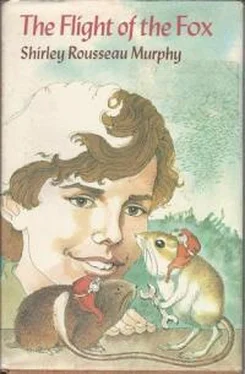
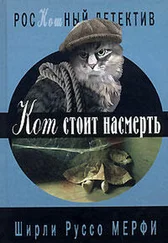
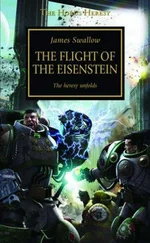

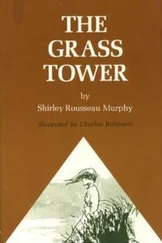
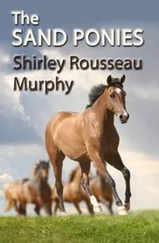
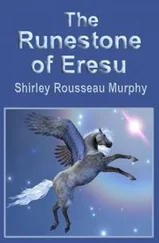
![Ширли Мерфи - The Shattered Stone [calibre]](/books/436059/shirli-merfi-the-shattered-stone-calibre-thumb.webp)




